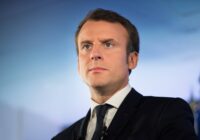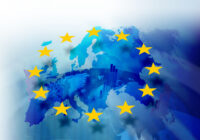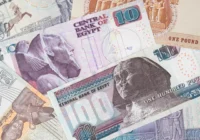French President Emmanuel Macron is seriously trying to reignite momentum as he faces mounting challenges from the French Right.
This April, in sweeping speech at Sorbonne University in Paris, he repeated his call for a more assertive Europe, a theme he has been spearheading since Russia invaded Ukraine in 2022. Macron articulated his vision for a reinforced and “sovereign” European Union. In his nearly two-hour speech, Macron conveyed his conviction that only a robust European power can salvage the continent from irrelevance in an unstable world. With the privilege of global dominance contested between the United States and China — and the former engaged in, if not distracted by, conflicts in Europe and the Middle East — Macron sees a strengthened EU as the linchpin for navigating these turbulent times.
The resurgence of Marine Le Pen’s right-wing Rassemblement National (RN) presents the starkest contrast to Macron’s vision for France and the European Union. With its nationalist rhetoric and anti-immigration stance, Le Pen’s party has tapped into disenchantment among vast swathes of the French electorate, particularly in rural and working-class areas.
Liberals lose ground to the Far Right in France and elsewhere
For Macron and his Renaissance party, the challenge lies in countering the RN’s appeal and rejuvenating the party base. The ongoing European Parliament elections that run from June 6 to 9 serve as a litmus test for Macron’s leadership and the viability of his pro-European agenda. Le Pen’s list, led by the emerging figure of Jordan Bardella, 29, is gaining momentum. The Renaissance list, headed by relatively unknown Member of European Parliament (MEP) Valérie Hayer, struggles to maintain relevance. As of June 3, Renaissance had slipped to a mere 15% according to voting intention polls presented by Politico. RN, on the other hand, held a commanding 33%. This shift marks a stark departure from the neck-and-neck competition witnessed in the previous European election five years ago.
The upcoming results of the EU election hold significant weight as this contest serves as the final scheduled national vote in France before the 2027 presidential election. Le Pen is poised to make her fourth and potentially most formidable bid for power. Only two years into his second term, Macron faces the specter of becoming a premature lame duck. He lacks a solid parliamentary majority domestically and faces the constant threat of no-confidence motions.
Moreover, Macron’s European influence is under threat as the European Parliament group to which Renaissance belongs, Renew Europe, faces declining support across European electorates. France’s stature further diminishes amidst chronic high budget deficits, something that should theoretically trigger an EU disciplinary procedure post-election.
Macron’s speech underscores the significance of the elections as a litmus test for his political standing and the future trajectory of his party. Macron is endeavoring to rally support and reassert his leadership in the face of stiff competition from right-wing adversaries. How Macron navigates these turbulent waters in the coming weeks will undoubtedly shape the political landscape of France and Europe at large.
Macron pushes for continental defense
In his recent address, Emmanuel Macron once again reiterated the “importance” of nuclear deterrence for Europe’s security, hinting at the possibility of broadening Franco-British nuclear cooperation to encompass other European nations. While such a move might appeal to a future UK Labour government, it remains a contentious issue in Germany and much of Eastern Europe. In recent months, Macron has explicitly talked about nuclear deterrence as a means of leverage required for European security.
In February, in response to reports that Ukraine was on the verge of defeat, Macron floated the possibility of France sending troops to the battlefield. In response, Russian President Vladimir Putin asserted that, in case of NATO engagement, Moscow would be prepared to utilize any arms, including tactical nuclear weapons. Macron in turn, reminded his audience that France is also a nuclear power and boasted: “We must first and foremost feel protected because we are a nuclear power. We are ready; we have a doctrine” for the use of nuclear weapons.
However, Macron’s initiatives have failed to dispel the perception that, rather than affecting the outcome of the conflict, they primarily fortify France’s military-industrial interests and prop up the diminishing influence of a mid-sized power. Macron must address these lingering doubts and ensure that his initiatives contribute meaningfully to collective European security.
Fiscal expansion of the EU
Interestingly, in his Sorbonne speech, Macron advocated a significant leap in Europe’s fiscal integration in economic policy. This would be accomplished by enlargening the EU budget, extending the post-pandemic recovery fund or reforming the European Stability Mechanism. However, Macron’s proposals overlooked the imperative of bolstering fiscal discipline at the national level — especially in France.
Even more daunting would be getting other Europeans to buy into the idea of granting expanded taxing authority to the EU. While Macron broke new ground by advocating for broadening the European Central Bank’s mandate to encompass growth and climate objectives, he fell short in addressing the necessary trade-offs and compromises to realize this ambition.
As Europe grapples with the complexities of economic recovery and transformation, Macron’s vision raises pertinent questions about the path forward and the concessions required to achieve meaningful progress. Macron presents a compelling vision for European integration. He advocates for a fortified single market and establishing a European industrial policy, while also championing deregulation and national flexibility.
However, more than lofty speeches will be needed to get the job done. Macron must articulate a viable theory of change and confront the intricate political realities shaping Europe. For Germany, European sovereignty means prioritizing democratic processes over executive power. Back in 2017, Macron proposed “democratic conventions” across the EU to make European citizens more involved in their own governance. At the Sorbonne, Macron acknowledged the failure of this plan, underscoring the challenge of achieving unity amidst cultural diversity and countering the effects of identity politics centered on migration — to say nothing of the challenge of cultivating what remains a mythical European identity.
Macron has charted out what he believes is a new path for European integration in a perilous future. We will know soon whether European citizens have found him credible.
[Liam Roman edited this piece.]
The views expressed in this article are the author’s own and do not necessarily reflect Fair Observer’s editorial policy.
Support Fair Observer
We rely on your support for our independence, diversity and quality.
For more than 10 years, Fair Observer has been free, fair and independent. No billionaire owns us, no advertisers control us. We are a reader-supported nonprofit. Unlike many other publications, we keep our content free for readers regardless of where they live or whether they can afford to pay. We have no paywalls and no ads.
In the post-truth era of fake news, echo chambers and filter bubbles, we publish a plurality of perspectives from around the world. Anyone can publish with us, but everyone goes through a rigorous editorial process. So, you get fact-checked, well-reasoned content instead of noise.
We publish 2,500+ voices from 90+ countries. We also conduct education and training programs
on subjects ranging from digital media and journalism to writing and critical thinking. This
doesn’t come cheap. Servers, editors, trainers and web developers cost
money.
Please consider supporting us on a regular basis as a recurring donor or a
sustaining member.
Will you support FO’s journalism?
We rely on your support for our independence, diversity and quality.









Comment